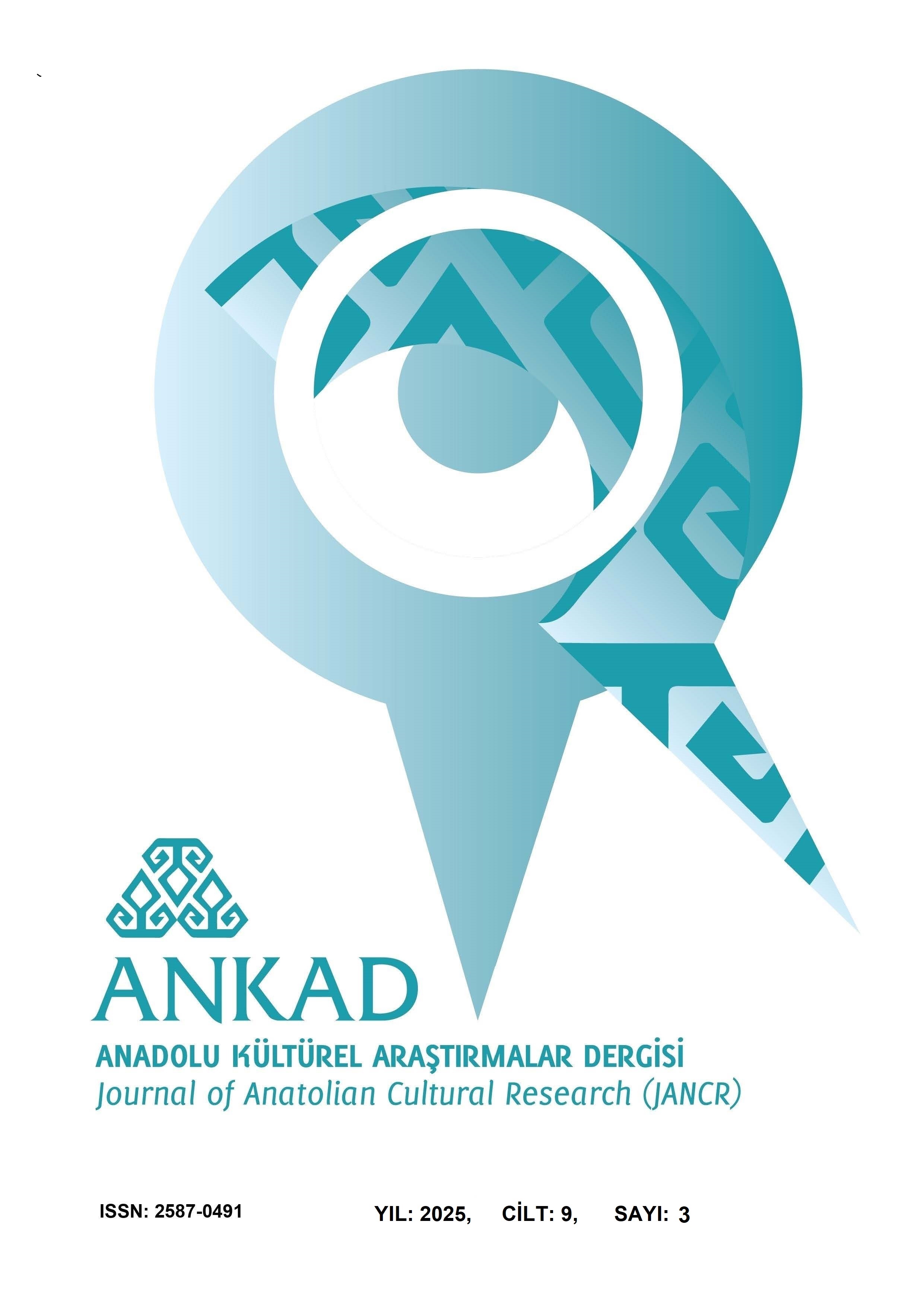The Importance of the Village Phenomenon and Village Studies in the Analysis of Türkiye’s Social Structure in the Context of Globalization
DOI:
https://doi.org/10.63556/ankad.v9i3.283Keywords:
Globalization, urbanization, village, peasantry, villagerism, AnkaraAbstract
The world first entered the process of modernization and then globalization. Many changes occurred during these processes. The industrial revolution took place during the modernization process. The Industrial Revolution transformed the social structure of Europe. Feudalism collapsed and capitalism emerged in its place. For capitalism, it was essential to produce and sell goods in factories. Therefore, people were needed to work in factories, not in the fields. Villages became empty. Peasants went to cities to work as workers. The old village order did not remain. Urbanization accelerated. Modern society was established in cities. Countries outside Europe were affected by this change but did not experience the same process. The Ottoman Empire tried to keep up with new developments as much as possible and modernize its country. This desire was not fully realized. The Republic transformed this desire into a will and tried to modernize the country with radical revolutions. In the years when the Republic was founded, Turkish society was predominantly living in villages. Social problems began to be solved starting from here. Village development programs were prepared. It was desired to benefit from village research. Concepts such as peasantry and peasantry came to the fore. Migration from villages to cities accelerated with industrialization moves. Social development and economic development increased. Those migrating to cities began to live a more comfortable life. During this period, a process called globalization had also begun in the world. The world was now considered to be like a “global village”. However, Türkiye’s villages were increasingly empty, and peasantry had begun to transform. Nowadays, villages are struggling between wealth and poverty. We cannot decide whether this situation is good or bad. Our duty is to determine what is happening as it is. Only political and bureaucratic cadres who are in a position to find solutions will find how to compensate for the lost functions of the village. For this, it is essential to determine the situation and develop suggestions.
References
Alpkaya, F. (2017). Toplumsal yapı ve toplumsal değişme, Ed. F. Alpkaya-B. Duru, 1920’den Günümüze Türkiye’de Toplumsal Yapı ve Değişme, 4. Baskı, Ankara: Siyasal Kitabevi.
Arslan, H. (2019). Türkiye’de kır sosyolojisi araştırmaları, Ankara: Siyasal Kitabevi.
Berkes, N. (1942). Bazı Ankara köyleri üzerine bir araştırma, Ankara: DTCF Yayınları.
Divitçioğlu, S. (2000). Oğuz’dan Selçuklu’ya boy konat ve devlet, İstanbul: Yapı Kredi Yayınları.
Eryiğit S. (2024). Osmanlı ve kapitalizm, Ankara: Mi Yayınları.
Fildiş, B. (2019). Köy ve kent sosyolojisi bağlamında Mehmet Ali Şevki Sevündük’te memleket, Ed. T. Erdoğan, Psikoloji ve Sosyoloji Araştırmaları içinde, Ankara: Akademisyen Kitabevi.
Geray, C. (1972). Toplum Kalkınması ve Köy Araştırmaları, AÜ Eğitim Bilimleri Fakültesi Dergisi, Cilt: 5, Sayı: 1.
Gökçe, B. (2004). Türkiye’nin Toplumsal Yapısı ve Toplumsal Kurumlar, Ankara: Savaş Yayınları.
Güngör Ergan, N. (2018). II. Bölüm: Türkiye’nin toplumsal yapı temelleri, Ed. N. Güngör, Türkiye’nin Toplumsal Yapısı, Ankara: Siyasal Kitabevi.
Kurnaz, C. (2018). Bir köy vardı, Ankara: Kurgan Edebiyat.
Makal, M. (1950). Bizim köy, 4.baskı, İstanbul: Varlık Yayınları.
Ozankaya, Ö. (1971). Köyde toplumsal yapı ve siyasal kültür, Amme İdaresi Dergisi, Cilt: 4, Sayı: 1, Sayfa: 31-40.
Ökmen, M. vd. (2016). Köylerin Mahalleye Dönüşüm Kararının Etkilerini Belirlemeye Yönelik Bir Araştırma: Manisa Büyükşehir Belediyesi Örneği, Kamu Yönetiminde Değişimin Yönü ve Etkileri (KAYFOR 13 Bildiri Kitabı), Konya.
Özönder, M. C. (ed.). (2005). Son konar-göçerlerin (Sarıkeçili aşiretinin) sosyo-kültürel yapısı, Ankara: H.Ü. Türkiyat Enstitüsü Yayınları.
Planck, U. (1971). Türkiye’de Köy Sosyolojisi, (Çev. Reşit Küçükboyacı), Atatürk Üniversitesi İktisadi ve İdari Bilimler Dergisi, Cilt 2, Sayı 4.
Sağlam, S. (2016). Türkiye’de köyle ilgili uygulama ve çalışmalar ile Türk sosyolojisindeki yansımaları, Sosyoloji Konferansları, No: 53, Sayfa: 221-255.
Şenel, A. (1982). İlkel Topluluktan Uygar Topluma Geçiş, Ankara: A.Ü. SBF Yayınları.
Tezcan, M. (1970). Sosyolojik Yönden Köy, Amme İdaresi Dergisi, Cilt: 3, Sayı: 3, Sayfa: 151-182.
Tuztaş Horzumlu, A. H. (2014). Konup-göçmek, yerleşmek ve yaşamak: Sarıkeçililer’de mekân ve anlatı, Yayınlanmamış Doktora Tezi, İstanbul: Yeditepe Üniversitesi.
Türkel, N. & Atasoy, F. (2012). Bir Köy Monografisi Ankara Nallıhan Eymir Köyü, Ankara: Nallıhan Matbaası.
TÜİK Haber Bülteni (2021) Adrese Dayalı Nüfus Kayıt Sistemi 2020 Sonuçları, Sayı: 37210, https://data.tuik.gov.tr/Bulten/Index?p=Adrese-Dayali-Nufus-Kayit-Sistemi-Sonuclari-2020-37210.
Ülkümen, L. (1970). Medeniyet ve köy, Erzurum: Atatürk Üniversitesi Yayınları.
Yasa, İ. (1970). Türkiye’nin toplumsal yapısı ve temel sorunları, Ankara: TODAİE Yayınları.
Yavuz, F. (1962). Köy Kalkınması, AÜ Siyasal Bilgiler Fakültesi Dergisi, C. XVII, S. 2, Ankara.
Yılmaz, M. (2019). Türkiye’de kırsal nüfusun azalması ve doğurduğu sonuçlar, Bildiri kitabı içinde, Uluslararası Türk–Rus Dünyası Akademik Araştırmalar Kongresi (14 – 16 Aralık 2018) Ankara: Berikan Yayınevi, Sayfa: 277-297.
Downloads
Published
How to Cite
Issue
Section
License
Copyright (c) 2025 Journal of Anatolian Cultural Research

This work is licensed under a Creative Commons Attribution-NonCommercial 4.0 International License.










